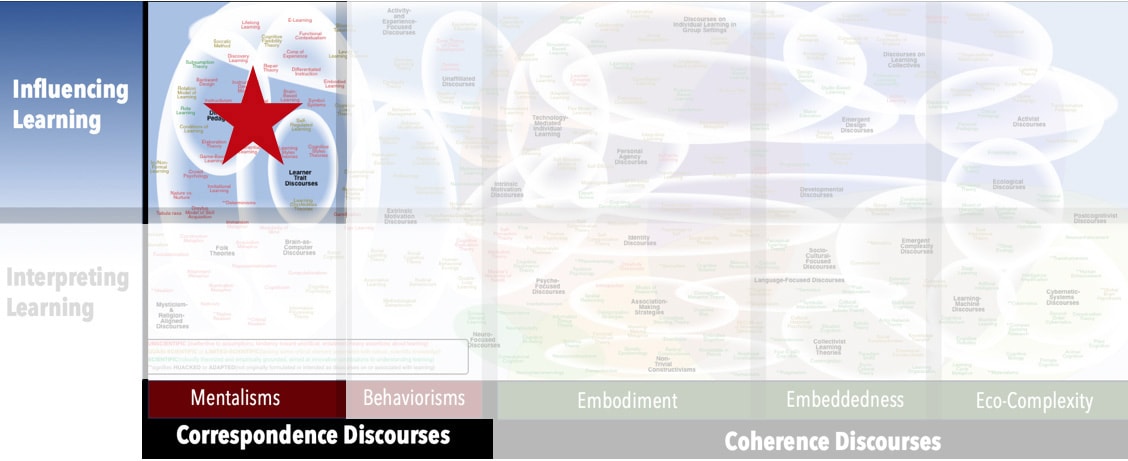Focus
Emphasizing relevance in formal educational settingsPrincipal Metaphors
- Knowledge is … information
- Knowing is … using information
- Learner is … an information processor (individual)
- Learning is … inputting (and associated computer-based notions, such as processing, storing, and retrieving)
- Teaching is … transmission (of information)
Originated
1990sSynopsis
Functional Contextualism is an instruction-focused variation of Cognitivism that emphasizes relevance. For instance, topics should be made as relevant as possible by linking to learners’ established understandings. Activities should be made relevant by using materials and equipment that learners will actually be using after completing their studies. Assessment should be relevant to the particular learners and their particular situations.Commentary
Functional Contextualism was originally developed for adult technical and literacy training, and that narrow focus might help to explain its instrumental emphases. Proponents seem to be entirely unaware of the perspectives roots in Brain-as-Computer Discourses.Authors and/or Prominent Influences
Tom StichtStatus as a Theory of Learning
Functional Contextualism is not a theory of learning.Status as a Theory of Teaching
Functional Contextualism is a theory of teaching.Status as a Scientific Theory
Functional Contextualism meets none of our criteria of a scientific theory.Map Location

Please cite this article as:
Davis, B., & Francis, K. (2020). “Functional Contextualism” in Discourses on Learning in Education. https://learningdiscourses.com.
⇦ Back to Map
⇦ Back to List
